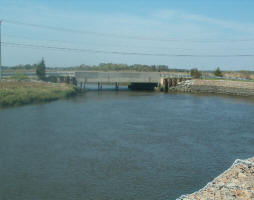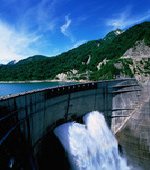 Press release - Med 4.2: Sustainable financing for Sanitation Sector
Press release - Med 4.2: Sustainable financing for Sanitation Sector
| Released | 02/03/2012 |
|---|
Med 4.2: Sustainable financing for Sanitation Sector
During the next World Water Forum to be held in Marseille from 12 to 17 March 2012, the Euro-Mediterranean Information System on know-how in the Water sector (EMWIS) is coordinating with the Tunisian National Office for Sanitation (ONAS) the session Med 4.2: “Sustainable cost recovery (SCR) for sanitation services” under the Mediterranean Cross Continental Process, Priority 4: Urban and Industrial Wastewater collection and treatment.
Financing is a necessary (but
not sufficient) condition for achieving adequate water and sanitation services
and the resulting benefits on health, education and economic activity. In the
last years, not only developing countries but also developed countries are
facing difficulties to establish sustainable mechanisms to finance such sector.
In
Hence, the objective of this session is to analyze and discuss the best mechanisms for financing urban and industrial sanitation services. One of the important mechanisms consists in considering the cost recovery scheme for the overall sanitation cycle in order to have a clear picture of all the costs and to match them with the necessary financial resources: tax payer money, tariffs and fees, and international financial aid (Transfer) i.e. the 3 Ts. This approach aims at answering the question "Who pays what?" On the other hand, it will be also the occasion to discuss some emerging solutions such as: generating new revenues (reuse waste water & sludge, energy production) and payment for ecosystem (Eco-tax / environmental tax).
Some case studies from
This session will take place on Wednesday 14/03 from 08h00 to 10h00 in room: “PC 13 - Patio 3 > Palais des Congrès (Level 1)”, in coordination with the sessions of the thematic process on "Financing water for all".
For further information, please visit EMWIS web site:
 you are not logged in
you are not logged in





